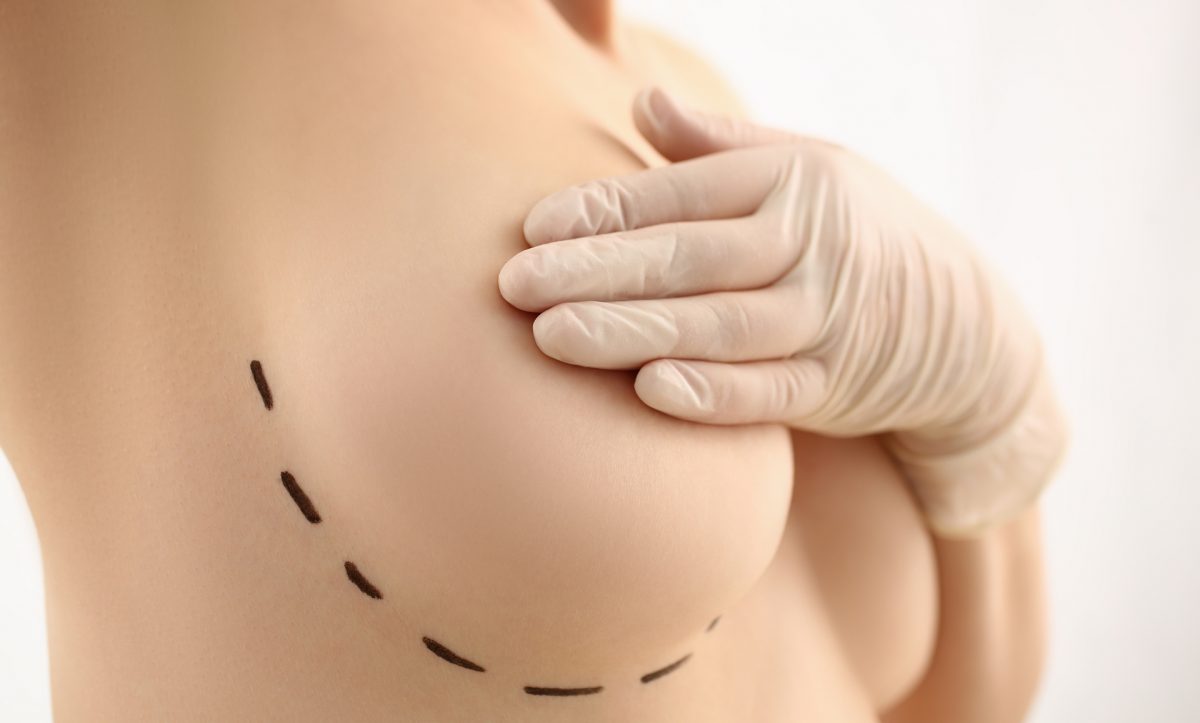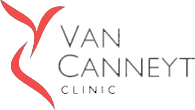Breast augmentation
Many women feel insecure about their breasts. Breast augmentation is one of the most frequently performed procedures in plastic surgery, in addition to a breast lift, and therefore also in our clinic in Ghent.
Van Canneyt Clinic offers you the choice between breast augmentation with implants or natural breast augmentation with your own fat.
The latter method is particularly suitable for a small breast augmentation of no more than a cup size.

PREPARING FOR THE BREAST AUGMENTATION
Your breast lift surgeon will want to begin by making sure you are in good health. You should be well informed and have realistic expectations of the result, risks and the post operative period before planning the operation. It is also important for the plastic surgeon to understand your size requirements. Before the breast augmentation , breast measurements are taken and the surgeon will make markings on the chest.
Before the cosmetic surgery your surgeon will also make a decision regarding the positioning of the implant. It can be placed either partially or totally under the pectoralis major muscle (submuscular) or on top of the muscle and under the glands (subglandular). The surgeon, in consultation with you, will choose the location before the aesthetic surgery depending on your physical characteristics.
These include how much breast tissue you have and whether you plan to be involved in strenuous physical exercise.
SURGICAL INCISIONS DURING BREAST AUGMENTATION
There are 3 possible incision sites for breast augmentation operations:
used method.
- Inframmamary. An incision is placed along the crease below the breast. This is the most widely
- Periareolar. An incision is made along the border of the areola, beside the nipple.
- Transaxillary. An incision is made in the armpit.
AFTER YOUR BREAST AUGMENTATION
Depending upon what your surgeon recommends, you may have dressings around your breasts and may be advised to wear a surgical bra or elasticated bandage during the recovery period. Once your stitches have been removed, your doctor may instruct you to gently massage the scar with cream or lotion (one recommended by your doctor) to prevent the skin from drying out.
These are only general guidelines. Every woman is different, so it is important to follow your doctor’s specific instructions carefully and consult a surgeon for medical follow up after your breast augmentation. You should also always consult a physician or a pharmacist before using topical medicines (e.g. steroids) in the breast area following breast enhancement.
If any clinical examination or surgery in the breast area is planned you should inform your doctor or nurse of the presence of an implant. It is recommended to carry the patient card provided at all times to facilitate medical care in case of emergency (for example, in case of a road accident).
POTENTIAL UNDESIRABLE EFFECTS AFTER A BREAST AUGMENTATION
Pain: As expected following any invasive surgical procedure, pain of varying intensity and duration may occur following breast implant surgery. Very occasionally severe pain associated with arm movement has been reported. If you have any pain following surgery you should contact your surgeon or doctor for prompt investigation.
Infection: Infection is possible in any operation. If you develop an infection you will need to see your doctor as soon as possible and you may need to have a further operation to remove the implant. When the infection has cleared the implant can then be replaced. Although most infections can be treated successfully, infections can cause serious problems and may result in increased scarring. In a small number of cases these infections may come back.
Aesthetic consequences: Scar deformity, pronounced scarring, asymmetry, displacement, incorrect size and palpability may occur. Of course it is better to prevent scars than later having to remove scars!
Changes in nipple and breast sensation: Implant surgery may result in changes in nipple or breast sensation. The breast and nipple may become painfully sensitive or all sensation may be lost. In most cases these changes are temporary but in as many as 1 in 7 women, changes in nipple sensation can be permanent. You should discuss this possibility with your surgeon.
